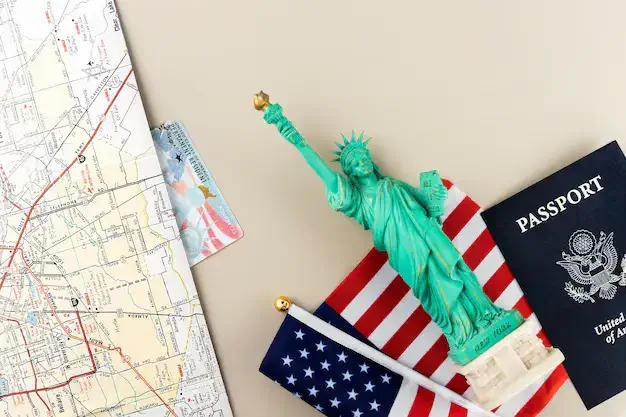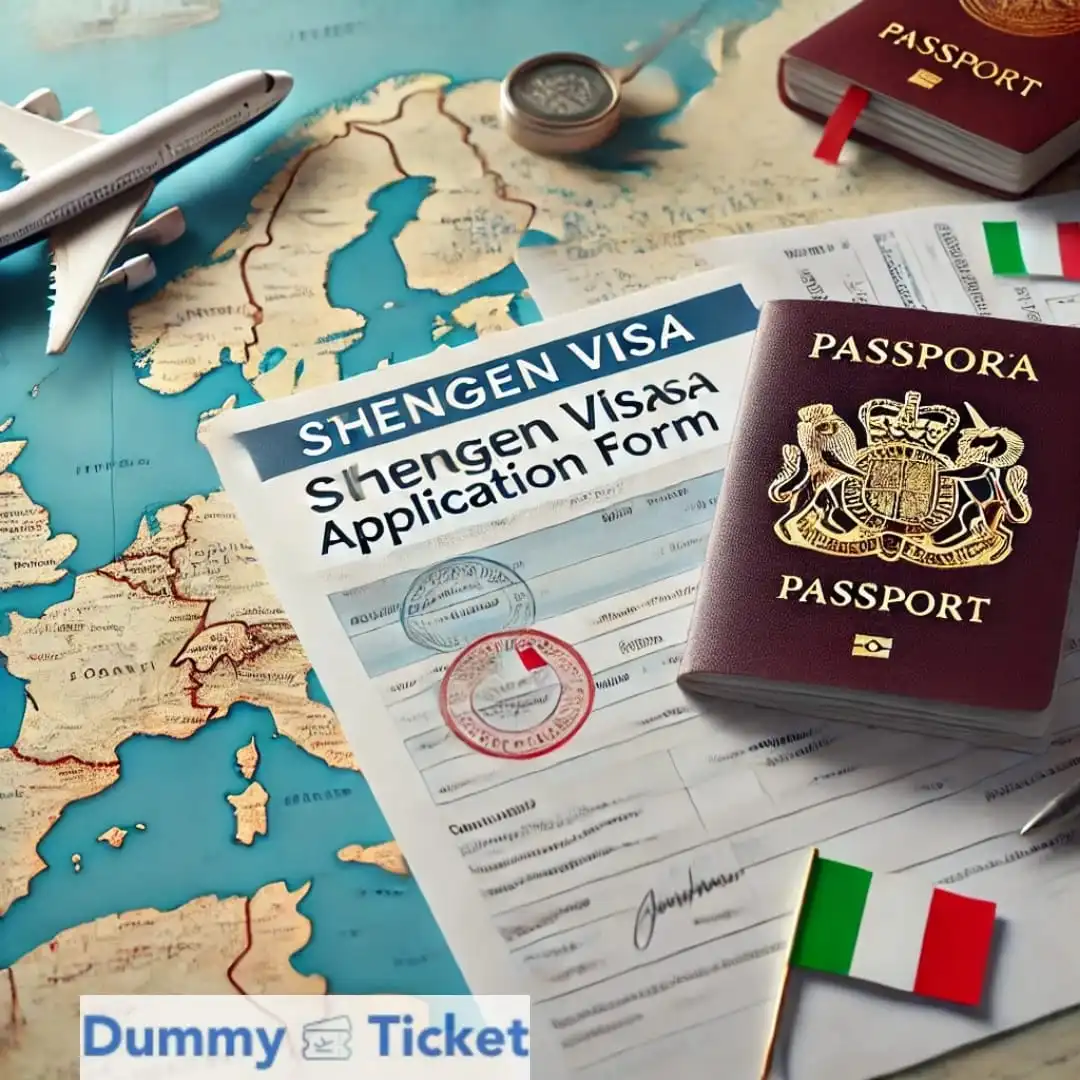If you are planning to visit Bangladesh, whether for tourism, work, or study, the first step is obtaining the appropriate visa. In this article, we provide a comprehensive guide on the types of visas, application requirements, and steps necessary to secure a visa to Bangladesh.
Types of Bangladesh Visas
1. Tourist Visa:
Designed for visitors planning to explore Bangladesh’s attractions, culture, and natural beauty.
Duration: Usually short-term, ranging from 15 to 90 days.
2. Bangladesh Work Visa:
Granted to individuals with employment contracts with companies or organizations in Bangladesh.
Requirements: An official job invitation or an approved employment contract.
3. Student Visa:
Issued to students enrolled in Bangladeshi universities or institutes.
Requirements: An official acceptance letter from the educational institution.
4. Business Visa:
Suitable for business professionals attending meetings or finalizing deals.
Requirements: An invitation from a local company or organization.
5. Family Visit Visa:
Designed for visiting friends or relatives residing in Bangladesh.
Requirements: An invitation letter from the host.
Requirements for a Bangladesh Visa Application
To obtain a visa, you must prepare the following documents:
1. Visa Application Form:
Available for download from the official website of the Bangladeshi embassy in your country.
2. Passport:
Must be valid for at least six months.
Should contain at least two blank pages.
3. Personal Photo:
Two passport-sized photos with a white background.
4. Dummy Ticket Reservation:
Preferably a confirmed round-trip ticket.
5. Proof of Accommodation:
Hotel booking or a letter of invitation from a host.
6. Financial Proof:
Bank statements from the last 3–6 months to demonstrate your financial capability to cover the trip.
7. Invitation Letter (if applicable):
For family visits, study, or work purposes.
8. Visa Fees:
Varies depending on the visa type and applicant’s nationality.
Steps to Apply for a Bangladesh Visa
1. Contact the Embassy:
Find the location or website of the Bangladeshi embassy in your country.
Schedule an appointment to submit your application.
2. Prepare Your Documents:
Ensure all required documents are complete and translated into English, if necessary.
3. Submit Your Application:
Visit the embassy to submit your documents.
Pay the required visa fees.
4. Wait for Approval:
The processing time is typically 7 to 15 business days.
5. Collect Your Visa:
Once approved, retrieve your passport with the visa stamp.
Important Tips for Securing a Bangladesh Visa
1. Apply Early: Submit your application well in advance to avoid delays affecting your travel plans.
2. Ensure Accuracy: Double-check all details to avoid mistakes in your application.
3. Stay Updated: Check the embassy's website for any updates or changes in requirements.
4. Keep Copies: Maintain copies of all documents for future reference or in case of loss.
This guide ensures a smoother process to help you obtain your Bangladesh visa with ease and confidence.
Do You Need an eVisa?
Some countries offer the option of visa-on-arrival or an electronic visa (eVisa) for travelers to Bangladesh. Check your country's eligibility for this option on the official Bangladeshi government website.
Bangladesh Study Visa: A Comprehensive Guide for International Students
If you are seeking quality education in South Asia, Bangladesh stands out as an ideal destination thanks to its renowned universities and affordable tuition fees. To obtain a student visa for Bangladesh, you must follow specific procedures and prepare the required documents to ensure your application is approved. In this article, we provide a detailed guide on how to secure a study visa for Bangladesh.
Advantages of Studying in Bangladesh
Studying in Bangladesh offers numerous benefits that make it an appealing choice for some students. However, challenges may arise, so it’s crucial to be well-informed beforehand. Here, we highlight both the pros and cons to help you make an informed decision.
1. High-Quality Education
- Bangladesh is home to prestigious universities and technical institutes offering internationally recognized programs.
- It emphasizes fields such as medicine, engineering, social sciences, and humanities.
- Leading universities maintain competitive educational standards and collaborate with global institutions.
2. Diverse Academic Programs
- Bangladeshi universities offer specialized programs in fields like medicine and engineering.
- Many programs, particularly in healthcare and medical sciences, have international recognition.
3. Affordable Tuition and Living Costs
- Tuition fees are significantly lower compared to many other countries.
- Living expenses, including accommodation, food, and transportation, are budget-friendly for students.
4. Multicultural Environment
Offers opportunities to interact with students from diverse cultural backgrounds.
5. Advancing Infrastructure
The country is making strides in higher education, supported by government investments.
6. Opportunities for International Students
- Bangladesh welcomes foreign students and provides a supportive, multicultural academic environment.
- English-language programs are readily available for non-native speakers.
7. Rich Cultural Experience
- Bangladesh is steeped in history and culture, providing students with a vibrant living experience.
- Locals are known for their hospitality, making it easier to adapt to life in the country.
8. Renowned Medical Education
- Bangladesh is well-regarded for its medical programs, attracting numerous international students.
- Medical education costs are significantly lower than in countries like India or Pakistan.
Disadvantages of Studying in Bangladesh
1. Limited Educational Infrastructure
- Despite significant advancements, some universities lack modern facilities and well-equipped laboratories.
- Classrooms in certain universities may be overcrowded.
2. Daily Life Challenges
- Urban traffic congestion and underdeveloped infrastructure in some areas can make commuting difficult.
- Living standards vary significantly between urban and rural areas.
3. Climate and Weather Issues
- Bangladesh’s hot and humid climate may not suit all students.
- Seasonal flooding in certain regions can disrupt daily life.
4. Language Barriers
While English programs are available, Bengali remains the official language, posing challenges in communication outside academic settings.
5. Global Recognition of Degrees
Some academic programs may lack strong international recognition. It is essential to verify the global accreditation of your chosen program.
6. Health Challenges
- Public healthcare services in some areas are limited.
- Students must ensure they are vaccinated and avoid unsafe food or water sources.
7. Bureaucratic Procedures
- Applying for visas and registering with universities can be lengthy and complex.
- Immigration and residence permit processes may require additional time.
Tips for Students Considering Studying in Bangladesh
1. Choose Your University Carefully: Ensure the university and program are internationally recognized and align with your career goals.
2. Be Culturally Prepared: Learn about local culture and traditions to ease your transition.
3. Verify Accreditation: Confirm that your degree will be recognized in your home country or the countries where you plan to work in the future.
4. Plan a Suitable Budget: Create a financial plan to cover tuition fees and living expenses.
5. Take Health Precautions: Consult a doctor before traveling and adhere to health and safety guidelines.
By understanding the advantages and challenges of studying in Bangladesh, you can make a well-informed decision and maximize your academic experience in this culturally rich country.
Studying in Bangladesh: An Affordable Opportunity with Unique Cultural Experiences
Studying in Bangladesh can be an excellent opportunity for students seeking affordable education and a unique cultural experience. However, it's crucial to prepare for potential challenges and plan effectively to make the most of your time there. By carefully weighing the pros and cons, Bangladesh could become the ideal destination for your academic future.
Types of Study Visas for Bangladesh
1. Long-Term Student Visa: Granted to students enrolled in programs lasting more than one year.
2. Short-Term Student Visa: For students joining short-term courses or programs.
Requirements for a Study Visa in Bangladesh
To apply for a study visa, you need the following documents:
1. University Admission Letter
- An official letter from the university or educational institution confirming your admission.
- It should include details of the study program and its duration.
2. Passport
- Must be valid for at least six months.
- Should have blank pages for visa stamps.
3. Visa Application Form
A completed and signed visa application form.
4. Passport-Sized Photos
Two recent photos with a white background.
5. Financial Proof
A bank statement proving you can cover the costs of tuition and living expenses.
6. Visa Fee Payment
Pay the required fee, which varies depending on your nationality.
7. Accommodation Proof
Confirmation of housing arrangements (either on-campus or private accommodation).
8. Medical Report
A health certificate confirming you are free from infectious diseases.
9. Recommendation Letter (if applicable)
Some universities may require a recommendation letter as part of their admission criteria.
10. Educational Documents
Previous academic certificates translated into English and certified.
Steps to Apply for a Study Visa in Bangladesh
1. Obtain University Admission:
Apply to the university or educational institute of your choice.
After acceptance, receive the official invitation letter.
2. Prepare the Documents:
Collect and ensure all documents are complete.
3. Submit the Application:
Submit your visa application at the Bangladeshi embassy in your home country.
Complete the visa form and pay the required fees.
4. Attend an Interview (if required):
Some embassies may require a personal interview to assess your intentions.
5. Wait for Processing:
Visa processing typically takes 10 to 15 business days.
6. Receive Your Visa:
Once approved, collect your visa and start planning your travel.
Tips for Securing a Study Visa
1. Apply Early: Start your visa application as soon as you receive the admission letter to avoid delays.
2. Ensure Document Accuracy: Verify that all documents are complete and correctly translated.
3. Follow Immigration Rules: Adhere to visa regulations to avoid complications.
4. Seek Reliable Information: Visit the embassy or university’s official website for up-to-date guidance.
Cost of Living and Studying in Bangladesh
- Tuition Fees: $1,000 to $5,000 annually, depending on the program.
- Living Expenses: $300 to $500 monthly (including accommodation and meals).
Bangladesh is an excellent option for students seeking quality education at affordable rates. Following the visa application steps and preparing the required documents will help you start your educational journey smoothly. If you plan to study in Bangladesh, begin your application process now!
Top Universities in Bangladesh
Prestigious Public Universities:
- University of Dhaka: Established in 1921, it is the oldest university in Bangladesh and considered one of the most prestigious educational institutions. It has a rich history in progressive and national movements in Bangladesh and is characterized by the diversity of its academic programs across various fields.
- Bangladesh University of Engineering and Technology (BUET): Considered the leading university in engineering and technology in Bangladesh. Founded in 1876, it is renowned for its distinguished academic and research programs in architecture, civil engineering, electrical and electronic engineering, mechanical engineering, and more.
- Jahangirnagar University: Established in 1970, it is a public residential research university located in Savar, Dhaka. It is distinguished by its focus on scientific research and offers programs in arts, humanities, social sciences, natural sciences, biological sciences, business administration, law, and engineering.
- University of Rajshahi: One of the oldest and largest public universities in Bangladesh, established in 1953. It offers a wide range of academic programs across various faculties.
- Shahjalal University of Science and Technology (SUST): Located in Sylhet, it is a public university that focuses on science and technology.
Notable Private Universities:
- BRAC University: Established in 2001, it is a private research university that follows a liberal arts approach to education. It is highly regarded for the quality of its programs and research activities.
- North South University: Considered one of the first and most prominent private universities in Bangladesh, it is known for its programs in business administration, computer science, and engineering.
- Daffodil International University: A private university that focuses on providing high-quality education with a special emphasis on technology and innovation.
- East West University: Another reputable private university in Dhaka, offering a diverse range of academic programs.
- United International University (UIU): A private university located in Dhaka, known for its programs in engineering and business studies.
Important Notes:
- Rankings: Global and local university rankings vary slightly based on the criteria used. You can refer to ranking websites such as QS World University Rankings and UniRank for the latest information.
- Specializations: Choosing the right university largely depends on the specialization you wish to pursue. Some universities have a stronger reputation in specific fields.
- Admissions: The admission process to Bangladeshi universities, especially public ones, is highly competitive.
The Role of a Dummy Ticket in a Bangladeshi Study Visa Application
When applying for a study visa to Bangladesh, you are often required to provide proof of travel plans. One common requirement is a Dummy flight Ticket, which plays a vital role in the visa process, especially if you need to demonstrate your serious intent to travel and study.
Why Is a Dummy flight Ticket Needed?
1. Demonstrating Serious Intent:
Your Dummy Ticket shows the embassy that you actually plan to travel on a specific date to Bangladesh.
It builds trust that your visit’s purpose is genuine and aligned with the start of your academic program.
2. Organizing Visa Applications:
Provides officials with clear travel dates, helping them process your visa accordingly.
3. Flexible Reservations:
Dummy Ticket don’t require full payment, giving you time to finalize your plans without incurring high costs if your visa is denied.
4. Preliminary Approval:
Embassies use these reservations to confirm your commitment while understanding that final bookings will occur after visa approval.
What to Look for in a Dummy flight Ticket
1. Appropriate Travel Dates: The travel date should align with the start of your study program.
2. Accurate Details: Ensure your name and travel details match your passport.
3. Reservation Validity: Ensure the booking is valid when you submit your visa application.
4. Refundable Tickets: Avoid purchasing non-refundable tickets until your visa is approved.
What Happens If You Don’t Provide a Dummy flight Ticket?
- Your application may be considered incomplete, leading to delays or rejection.
- While some embassies may accept alternative proof, Dummy flight Ticket remain the most common and accepted option.
A Dummy Ticket is a critical component of your Bangladeshi study visa application. It demonstrates your commitment and simplifies the visa process. By opting for a reliable agency or airline, you can meet this requirement without financial risks. Ensure your Dummy Ticket aligns with your academic schedule to avoid complications




